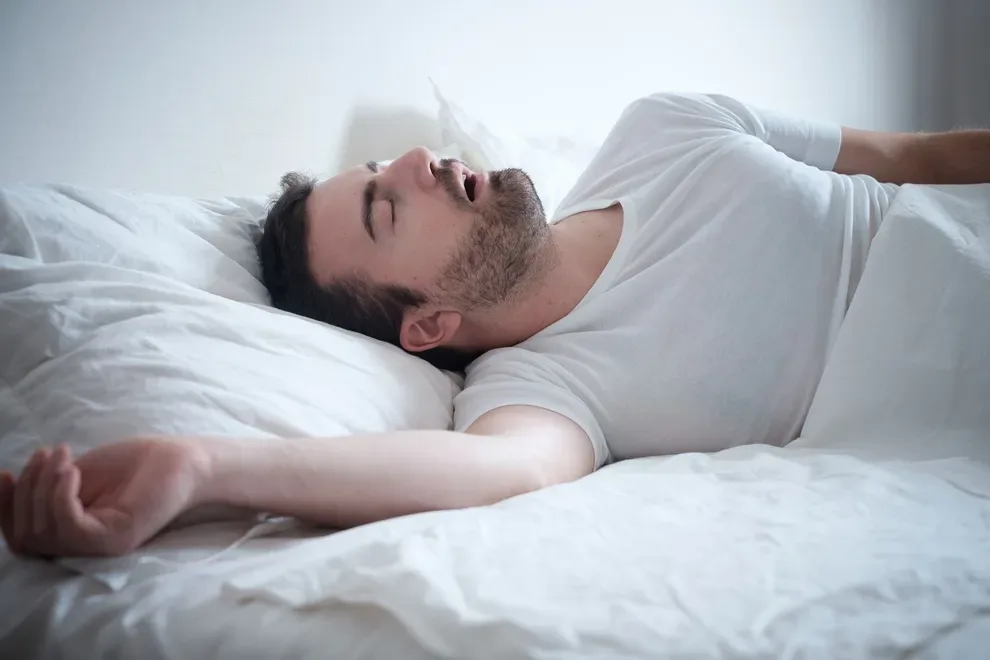Waking Up With Dry Mouth: How to Get Relief

Table of Contents
- What Is Dry Mouth?
- Treatment Options
- Natural Remedies
Relief for dry mouth is dependent on what the underlying cause is. For example, if a certain medication is causing your mouth to dry out when you sleep, you may need to change medications.
Dry mouth is an extremely common condition. It impacts anywhere from 1 percent to 65 percent of the population.
Also called xerostomia, dry mouth can be due to a variety of factors that cause you to make less saliva or have less saliva than you should. It can get worse at night, and it can be very uncomfortable to wake up with a dry mouth.
While dry mouth is something that should be discussed with your medical provider, there are some at-home natural remedies you can use to get relief.
What Is Dry Mouth?
Dry mouth is a condition that occurs when you do not have enough saliva in your mouth to keep it feeling wet.
This condition can range in severity from mild to significant. It can be something that happens occasionally, or it can be a chronic condition.
Dry mouth is common and underrecognized. It can cause problems chewing, swallowing, tasting, and talking. It can also cause a range of dental issues if not treated.1
Dry mouth is usually the result of your salivary glands not working the way they should. There can be other reasons that your mouth is dry all the time or that you wake up with a dry mouth.
Why Do I Wake Up With Dry Mouth?
These are some of the main causes of dry mouth:2
Chemotherapy or radiation: Cancer treatments can often cause saliva to be thicker, making your mouth feel dry.
Medications: Many medications have side effects. Some may cause your salivary glands to produce less saliva, leading to dry mouth.
Disease: Underlying conditions, such as diabetes, HIV/AIDS, and Sjogren’s syndrome, can all cause you to have a dry mouth.
Nerve damage: Trauma or injury to the neck or head can damage the nerves responsible for signaling the salivary glands to make saliva.
If you have chronic dry mouth issues, you may often wake up with a dry mouth, as you will regularly make less saliva at night. These are some of the other reasons you may wake up with a dry mouth in the morning:3
Dehydration: If you did not have enough water during the day, drank alcohol, or consumed a lot of salty foods or drinks, you may become dehydrated and wake up with a dry mouth.
Mouth breathing: Breathing with your mouth open while you sleep can cause your mouth to dry out in the night.
Medications taken at night: There are hundreds of medications that can cause your mouth to dry out, and this can often be a culprit of waking up with dry mouth.
Sjogren’s syndrome: With this autoimmune condition, your body attacks the salivary glands and you make less saliva. This can get worse at night when your body makes even less than usual.
Treatment Options
If you are experiencing dry mouth when you wake up on a regular basis, talk to your doctor and/or dentist. There could be an underlying condition or issue that is causing this to happen. The right treatment will depend on what is causing your dry mouth.
If medications are the cause, your doctor can often make a switch to another option that will not have this same side effect. In the event of dehydration, change your diet and ensure you are getting enough water during the day. Your dentist can also prescribe special mouthwashes you can use before you go to bed to moisten your mouth and reduce nighttime dry mouth.
Mouth breathing can be the result of many different causes, including sleep apnea, blockage of the nasal passages, illness, or allergies.
To treat mouth breathing, you will need to address the root cause. For example, you may need to use a sleep apnea machine or wear a chin strap at night.
If you have an underlying medical issue, condition, or disease causing your dry mouth, that underlying issue will need to be addressed.
Natural Remedies
There are several things you can do at home to get some relief for dry mouth.
Use a humidifier at night. This can help to add moisture to the air, which can prevent some instances of dry mouth.
Avoid drinking caffeine at night. Caffeine can keep you awake and also lead to dehydration, less salivary production, and dry mouth symptoms.
Reduce alcohol intake. Alcohol can also cause dehydration and cause you to wake up more often with a dry mouth.
Sip water throughout the day: Drinking water more often can help to keep your mouth moist and also prevent dehydration.
Suck on sugar-free lozenges or chew sugar-free gum. This can promote saliva production throughout the day. Be sure to stick to sugar-free options to avoid tooth decay.
Do not smoke or use tobacco products. These can significantly dry your mouth during the day and lead to more dry mouth at night.
Dry mouth will often get worse at night when your body is making less saliva anyway. If you already suffer from dry mouth, it can be even worse when you wake up.
Talk to your medical providers about your dry mouth if it is a chronic condition. The issue can cause additional issues, and it is generally treatable.
